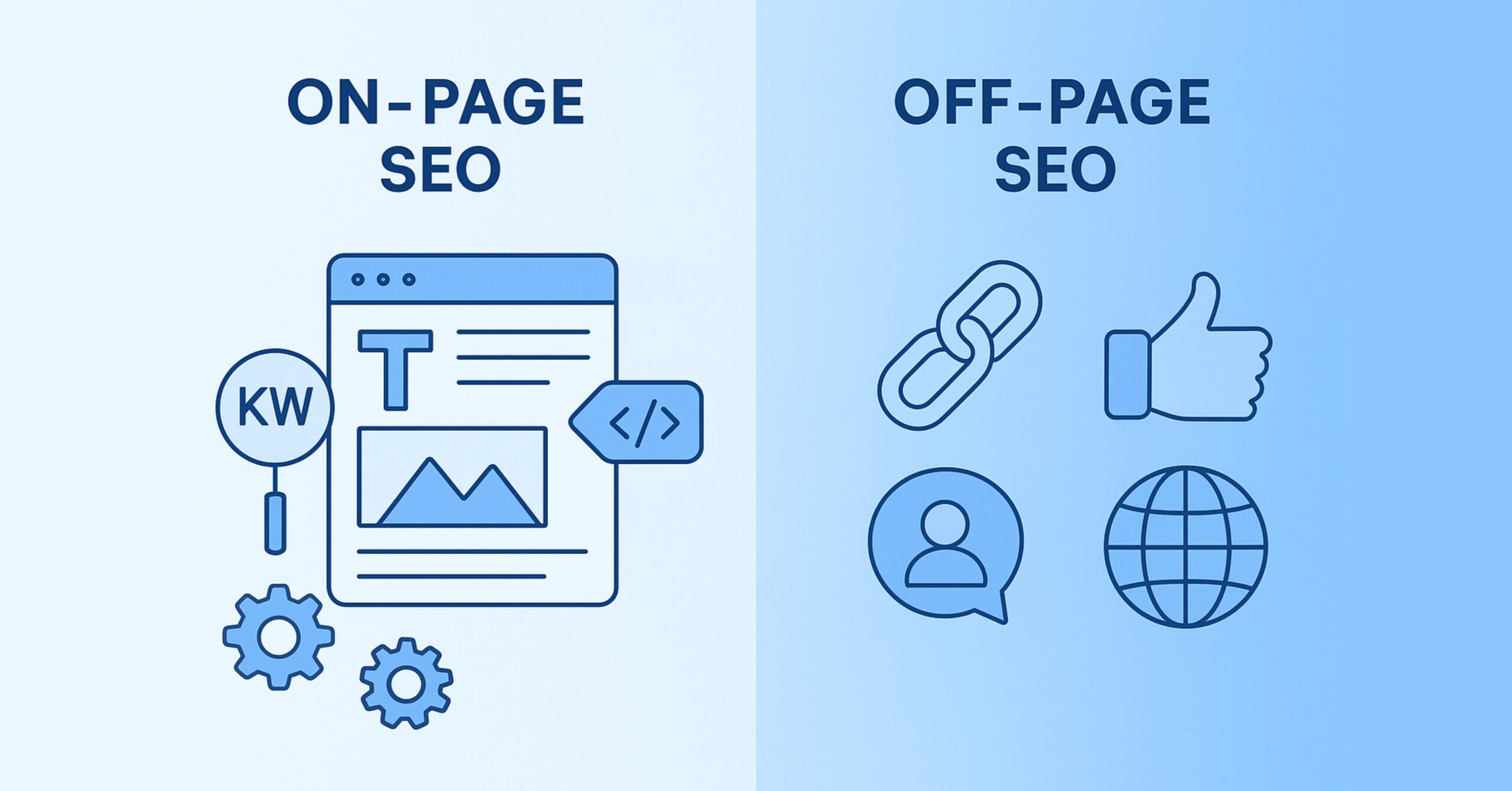In the ever-evolving realm of digital marketing, Search Engine Optimization (SEO) stands tall as a crucial pillar for enhancing online visibility and driving organic traffic to your website. As a website owner or marketer, it’s essential to understand the dynamic interplay between On-Page SEO and Off-Page SEO. These two distinct approaches work in tandem to elevate your website’s search engine rankings and amplify its online presence. In this comprehensive guide, we’ll delve into the depths of both strategies, highlighting their importance, key differences, and best practices.
Understanding On-Page SEO
On-Page SEO, as the name suggests, focuses on optimizing the elements present on your website’s individual pages. This approach involves fine-tuning various on-site factors to make your content more attractive and accessible to search engines. Let’s delve into the key aspects of On-Page SEO:
- Keyword Optimization: Keywords are the foundation of any successful SEO strategy. In-depth keyword research helps you identify relevant, high-volume keywords that resonate with your target audience. Incorporate these keywords naturally into your page’s title, headings, content, and meta descriptions to signal to search engines what your page is about.
- High-Quality Content: Content is king, and high-quality, informative, and engaging content is pivotal for On-Page SEO. Craft well-structured, relevant content that addresses the needs and interests of your audience. Incorporate your chosen keywords strategically while ensuring a seamless flow of information.
- Meta Tags and Descriptions: Crafting compelling meta titles and descriptions not only entices users to click through but also provides search engines with valuable context. Include your primary keyword while delivering a concise and accurate preview of your content.
- URL Structure: Keep your URLs concise, descriptive, and user-friendly. A clear URL structure makes it easier for both users and search engines to comprehend the page’s topic.
- Image Optimization: Images play a crucial role in enhancing user experience and engagement. Optimize images by using descriptive alt text, optimizing file sizes, and ensuring they load quickly.
Mastering Off-Page SEO
Off-Page SEO revolves around optimizing factors external to your website that influence your site’s credibility, authority, and relevance in the eyes of search engines. The aim is to build a robust online presence through various reputable channels. Here’s a closer look at Off-Page SEO strategies:
- Backlink Building: Backlinks, or inbound links from other authoritative websites to yours, are a cornerstone of Off-Page SEO. Seek opportunities to earn high-quality backlinks through guest posting, influencer collaborations, and content partnerships. Each backlink acts as a vote of confidence in your website’s credibility.
- Social Signals: Social media platforms wield significant power in today’s digital landscape. Engage with your audience on social media, share valuable content, and foster a strong online community. Social signals, such as likes, shares, and comments, contribute to your website’s credibility.
- Online Directories and Listings: Ensure your website is listed in relevant online directories and local listings. This not only enhances your visibility but also provides consistent NAP (Name, Address, Phone Number) information, boosting your local SEO efforts.
- Influencer Outreach: Collaborating with influencers in your industry can amplify your reach and credibility. When influencers endorse or share your content, it exposes your website to a broader audience, potentially leading to more organic traffic.
- Content Marketing: While content creation is a fundamental On-Page SEO element, promoting your content across various platforms is part of Off-Page SEO. Share your content through guest posts, forums, and social media to increase its reach and garner more backlinks.
Balancing the Scales: On-Page and Off-Page SEO
Both On-Page and Off-Page SEO are essential cogs in the SEO machine. The synergy between these two strategies is crucial for achieving optimal results. A harmonious blend of these techniques ensures that your website not only ranks higher on search engine results pages (SERPs) but also delivers a seamless user experience.
Conclusion
In the fast-paced digital landscape, mastering both On-Page and Off-Page SEO is paramount for driving organic traffic, boosting online visibility, and establishing your website as a credible authority in your industry. While On-Page SEO fine-tunes your website’s individual pages for search engine appeal, Off-Page SEO extends your influence beyond your site’s boundaries. By implementing a well-rounded SEO strategy that integrates the best practices of both approaches, you’ll be well on your way to dominating the search engine rankings and reaping the rewards of increased online success.



